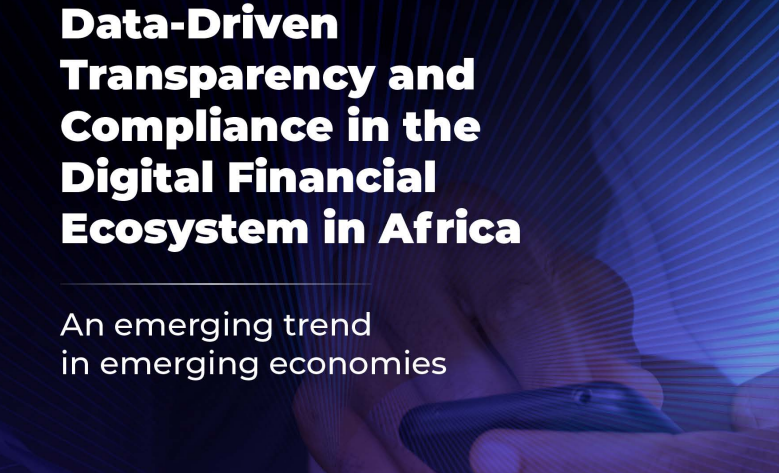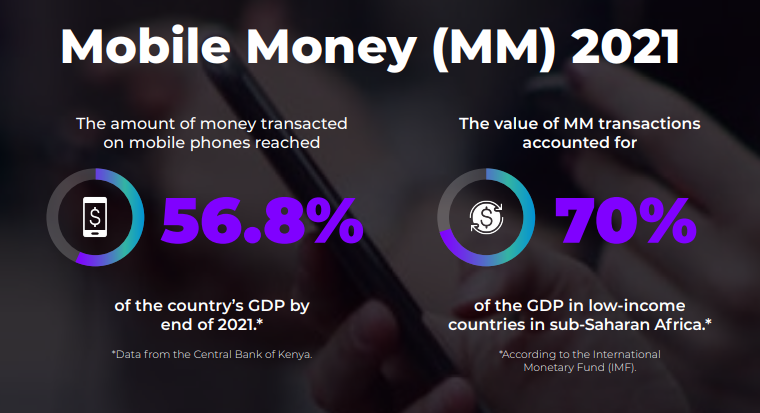Building Trust in Financial Markets Through Data-Driven Transparency and Compliance in Key Sectors
3 min read
Data-Driven Transparency and Compliance in Key Sectors
Data-driven transparency and compliance in the digital financial ecosystem in Africa remains a topic of concern in recent years. This comes at a time when mobile money and remittances show signs of dominating Africa’s economic development. However, if the recent statistics are anything to go by, this dominance can only be achieved if mobile money and remittances are supported with tools to boost data-driven transparency and compliance.
Considering the profound impact of Mobile Money on local economies, the capability to collect and mine such data has become a fundamental necessity for good Governance. Decision-makers are compelled to not only establish adequate regulatory frameworks but also leverage technology to ensure compliance,
streamline taxation processes, protect end-users’ data, improve Know-Your Customer (KYC) procedures, and mitigate risks associated with money laundering, financial terrorism and scams.
Many emerging countries are adopting a data-driven approach to address these critical concerns. This paper explores this emerging trend and provides insights into the data acquisition process itself, with a focus in the mobile money and remittance ecosystems.

According to a new whitepaper, released today, by Global Voice Group (GVG), a global provider of ICT and RegTech solutions for Governments and regulatory bodies, data from the World Bank shows that remittances accounted for at least 10 percent of the GDP of emerging and developing countries in 2020. More data shows that as of 2022, international remittances sent to low and middle-income countries reached US$626 billion.
The whitepaper, titled “Data-Driven Transparency and Compliance in the Digital Financial Ecosystem in Africa,” extensively examines the adoption of new technologies and the incorporation of global, regional, and national policies with a particular emphasis on mobile money, financial inclusion, data governance, and their impact on African economies. Serving as a guide to RegTech solutions, it offers a roadmap for seamlessly integrating technologies into current compliance frameworks. Additionally, the paper provides valuable insights into the future of regulatory compliance in the digital age.
“With the massive increase in digitization, African governments must ensure the implementation of effective monitoring solutions in the mobile money and remittance sectors”, said Edouard Docteur, The Chief Delivery Officer at GVG.
“The whitepaper highlights how governments in Africa must invest in regulatory frameworks and leverage technology to ensure compliance, streamline taxation processes, protect end-users’ data, and improve Know-Your-Customer (KYC) procedures. Additionally, the paper highlights how to mitigate risks associated with money laundering, financial terrorism, and scams”.
The whitepaper highlights the impact of remittances and mobile money on local economies and provides insights into data acquisition to boost financial inclusion and governance. Emerging countries like Congo, Ghana, and Rwanda adopt data-driven approaches to tackle fraud, money laundering, and revenue leakages.
Data from the Central Bank of Kenya (CBK) shows that the value of mobile money transactions reached 56.8 percent of GDP by end of 2021, an increase from 48.7 percent in 2020 and was projected to surge to 68 percent by the end of the 2022/2023 Fiscal Year.

Remittance inflows as of May 2023 totaled USD 352.1 million compared to USD 320.0 million in April 2023, an increase of 9.9 percent. The cumulative inflows for the 12 months to May 2023 totaled USD 3,997 million compared to USD 3,992 million in a similar period in 2022, an increase of 0.1 percent.
“By exploring this emerging trend, decision-makers, regulators, and industry experts will gain a deeper understanding of the challenges and opportunities associated with harnessing data to drive positive change and foster economic growth,” noted Edouard Docteur.
The whitepaper also notes that there are only 82 data centers in Africa compared to thousands in Europe and the United States. This represents only 1 percent of the global data center market, while the continent houses 17 percent of the global population, with only 36 out of 54 African countries having put in place some data protection laws or regulations. The current data protection and sovereignty requirements would require increasing the current number of data centers to at least 700 across the continent.
GVG drives innovation and shapes the future of tech-driven regulatory compliance, as a RegTech pioneer. Their whitepaper emphasizes knowledge sharing and collaboration across industries, governments, regulators, and tech providers.
The complete whitepaper can be accessed here.




